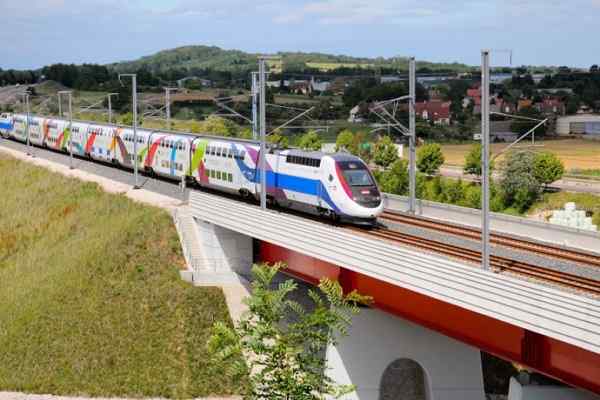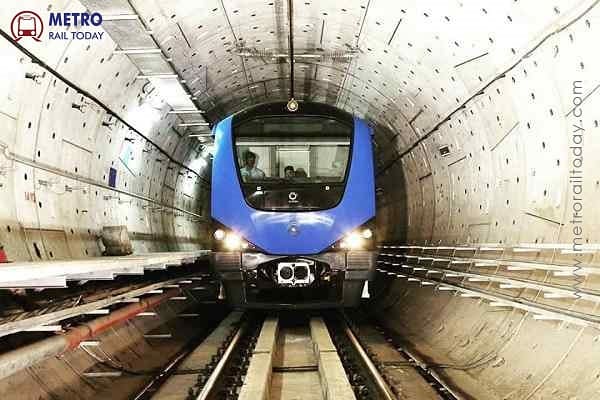 CMRL achieves second Tunnel Breakthrough at Thirumayilai for Chennai Metro Phase 2 Corridor 4
CMRL achieves second Tunnel Breakthrough at Thirumayilai for Chennai Metro Phase 2 Corridor 4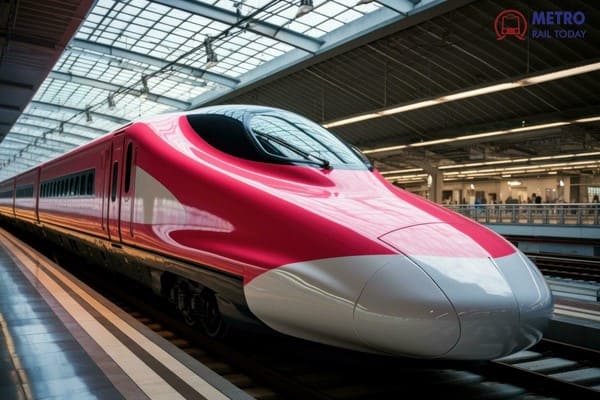 NHSRCL invites Single Tender from BEML for Bullet Train Rolling Stock Package
NHSRCL invites Single Tender from BEML for Bullet Train Rolling Stock Package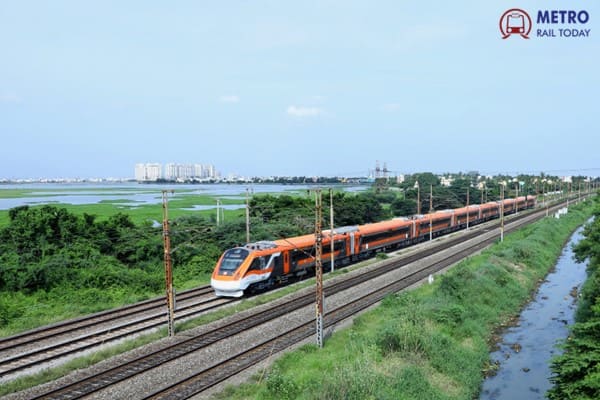 Railway Minister reviews progress of Ahmedabad–Dholera Semi High-Speed Rail Project
Railway Minister reviews progress of Ahmedabad–Dholera Semi High-Speed Rail Project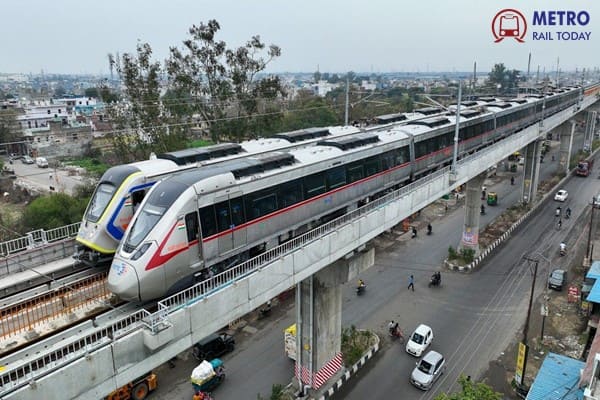 National Planning Group reviews key Rail & Metro projects under PM GatiShakti
National Planning Group reviews key Rail & Metro projects under PM GatiShakti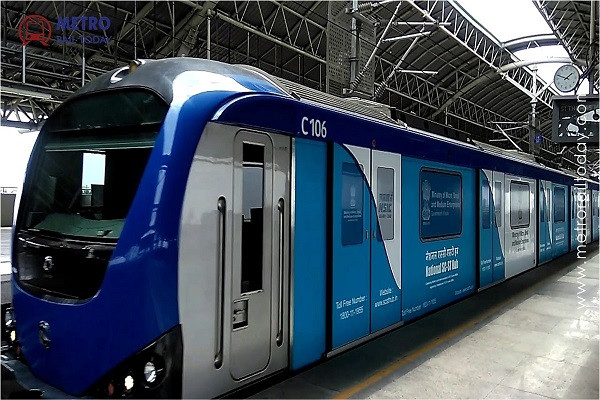 CMRS approves Driverless Metro Operations on first stretch of Chennai Metro Phase 2 Corridor 4
CMRS approves Driverless Metro Operations on first stretch of Chennai Metro Phase 2 Corridor 4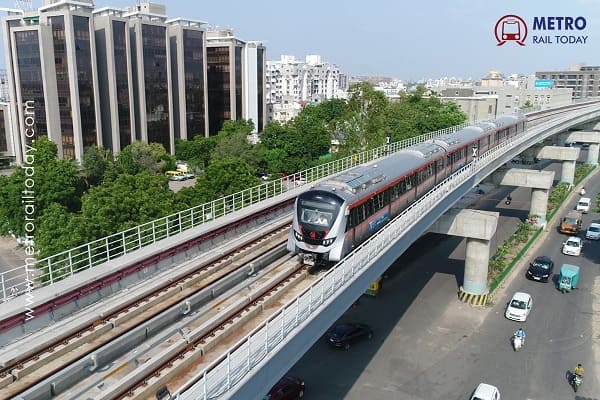 J Kumar Infraprojects completes Final Tunnel Breakthrough for Surat Metro Phase 1 Project
J Kumar Infraprojects completes Final Tunnel Breakthrough for Surat Metro Phase 1 Project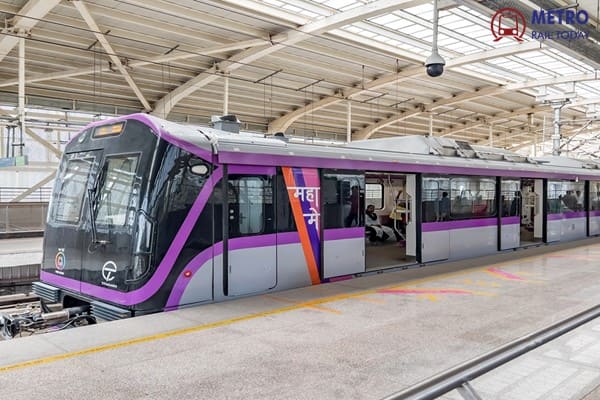 Apurvakriti Infrastructure awarded Ballastless Track Contract for Pune Metro Reach-1 Extension
Apurvakriti Infrastructure awarded Ballastless Track Contract for Pune Metro Reach-1 Extension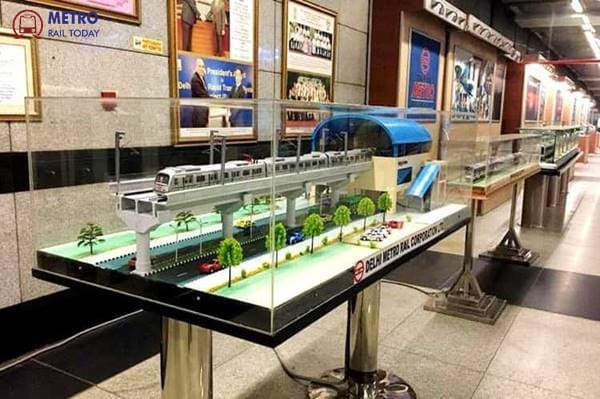 SAM India Builtwell bags first ₹222.76 Crore Civil Contract for Delhi Metro Phase V
SAM India Builtwell bags first ₹222.76 Crore Civil Contract for Delhi Metro Phase V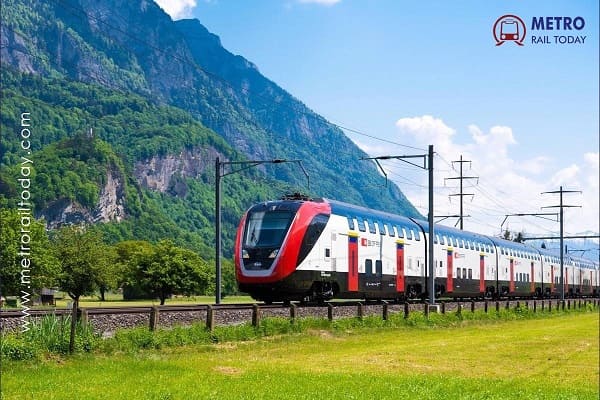 HRIDC conducts Investors Pre-Bid Meeting for Haryana Orbital Rail Corridor
HRIDC conducts Investors Pre-Bid Meeting for Haryana Orbital Rail Corridor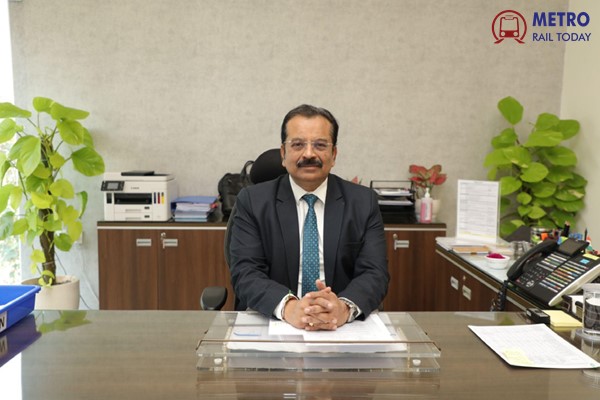 NCRTC Chief Shalabh Goel appointed as General Manager of Central Railway
NCRTC Chief Shalabh Goel appointed as General Manager of Central Railway
TuTr Hyperloop and IPRCL sign MoU to reinvent Cargo movement at Indian Ports
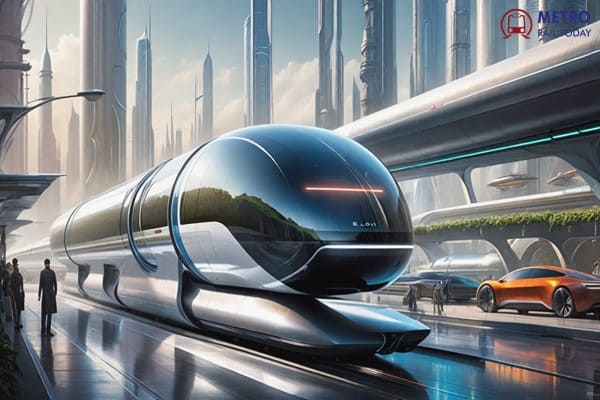
Mumbai, India (Metro Rail Today): In a bold leap towards modernizing India’s logistics and transportation ecosystem, TuTr Hyperloop, a deep-tech startup incubated at IIT Madras, has signed a Memorandum of Understanding (MoU) with Indian Port Rail & Ropeway Corporation Ltd. (IPRCL) to explore futuristic, high-speed, and sustainable freight transport systems.
The MoU was formalized during a signing ceremony held at IPRCL’s headquarters in Mumbai, attended by Shri Manoj Semwal, Managing Director, IPRCL; Dr. Aravind S Bharadwaj, Co-Founder & Director, TuTr Hyperloop and core leadership teams from both organizations.
This collaboration is seen as a strategic move to strengthen India’s cargo movement infrastructure while advancing the national vision of Atmanirbhar Bharat.
Hyperloop for Cargo: The Vision
The agreement lays the groundwork for a hyperloop-inspired, high-speed freight mobility system to revolutionize cargo handling at Indian ports. Leveraging advanced technologies such as Linear Induction Motors (LIM), Artificial Intelligence, and Digital Twin simulations, the partnership aims to:
-
Accelerate cargo movement with LIM-powered high-speed logistics systems
-
Reduce port congestion and turnaround time through automation
-
Minimize carbon emissions and energy use, aligning with India’s sustainability goals
-
Simulate and optimize operations using AI-powered digital twin platforms
-
Foster indigenous innovation to reduce dependency on foreign systems
Mrs. Mamta Shah, MD & CEO of Urban Infra Group, praised the development, “This collaboration is a future-ready response to India’s growing port logistics demands. By combining deep-tech innovation with practical infrastructure needs, it sets a new benchmark for sustainable and self-reliant cargo movement.”
Aligning with National Priorities
The partnership supports key national missions:
-
PM Gati Shakti Master Plan: By improving multimodal connectivity
-
Make in India & Atmanirbhar Bharat: By deploying indigenous deep-tech solutions
-
National Logistics Policy (NLP): By improving logistics efficiency and reducing costs
-
National Green Hydrogen Mission & Net Zero Targets: Through carbon reduction in freight operations
India’s major ports handle over 1.5 billion tonnes of cargo annually, but inefficiencies in last-mile cargo movement, port turnaround times, and heavy emissions remain significant challenges. The TuTr-IPRCL collaboration addresses these bottlenecks through next-generation mobility solutions.
Industry Impact and Innovation Potential
The MoU is more than a technical agreement—it’s a signal of India’s growing maturity in commercializing deep-tech research from academic institutions. TuTr Hyperloop, known for pioneering scalable, cost-effective hyperloop tech, is at the forefront of applying aerospace-grade engineering to port logistics.
By fostering such collaborations, India could:
-
Reduce logistics costs from current levels of 13–14% of GDP closer to global benchmarks
-
Attract international investment in smart port development
-
Create new IPs and export-ready technologies in high-speed freight transport
The signing of the TuTr Hyperloop–IPRCL MoU marks a transformative step in India’s port logistics evolution. It exemplifies the fusion of start-up agility and PSU scale, aimed at delivering faster, greener, and smarter cargo movement. As the collaboration progresses, it could very well position India as a global hub for sustainable freight mobility and tech-led port transformation.






